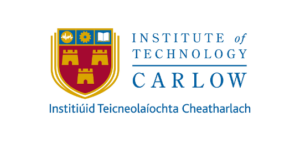BSc (with Honors) in Cybercrime and Computer Security
Key points
The course structure incorporates three pillars of knowledge: software development, networks, and cybersecurity. Initially, students acquire skills in the design and construction of computer networks and software applications. Security modules allow students to assess the security risk and posture of digital environments and perform solutions to identified security vulnerabilities.
Special features
- Students will follow our “learn by doing” model in the first year with assessment continuing to replace final exams.
- The work practices are incorporated into the third year of the course.
- Seniors will have the opportunity to showcase their skills and project work at the Carlow Institute of Technology industry showcase, attended by top IT employers.
Career outlook
With a growing concern for the privacy and security of digital information, cybersecurity has become one of the fastest growing sectors in the technology industry.
The World Economic Forum identified cyber threats as one of the greatest global risks from both impact and probability perspectives. Professionals with qualifications and experience in cybercrime and computer security are highly sought after.
Career options include roles in ethical hacking, secure application development, secure network administration, and digital forensics.
Program structure
Admission requirements
- Students must demonstrate that they have achieved a level of education in their home country that is equivalent to a High School Diploma (High School Diploma) with good grades in an appropriate language, mathematics and at least 4 other subjects.
- Students must also have an IELTS of 5.5 or equivalent.
Learn more about our educational offer
Request your quote
An advisor will contact you by phone and email within the following hours

